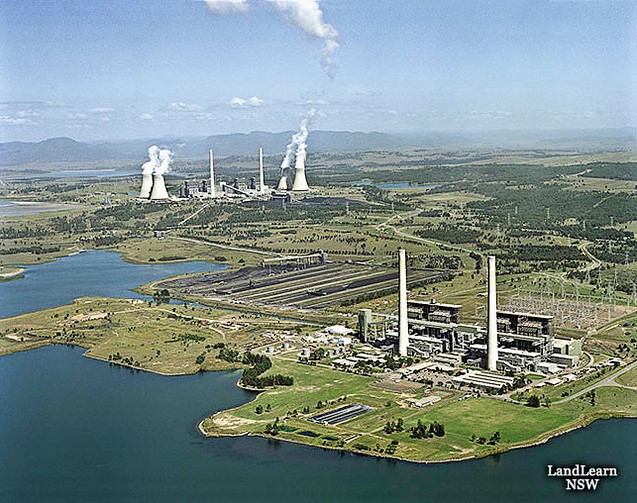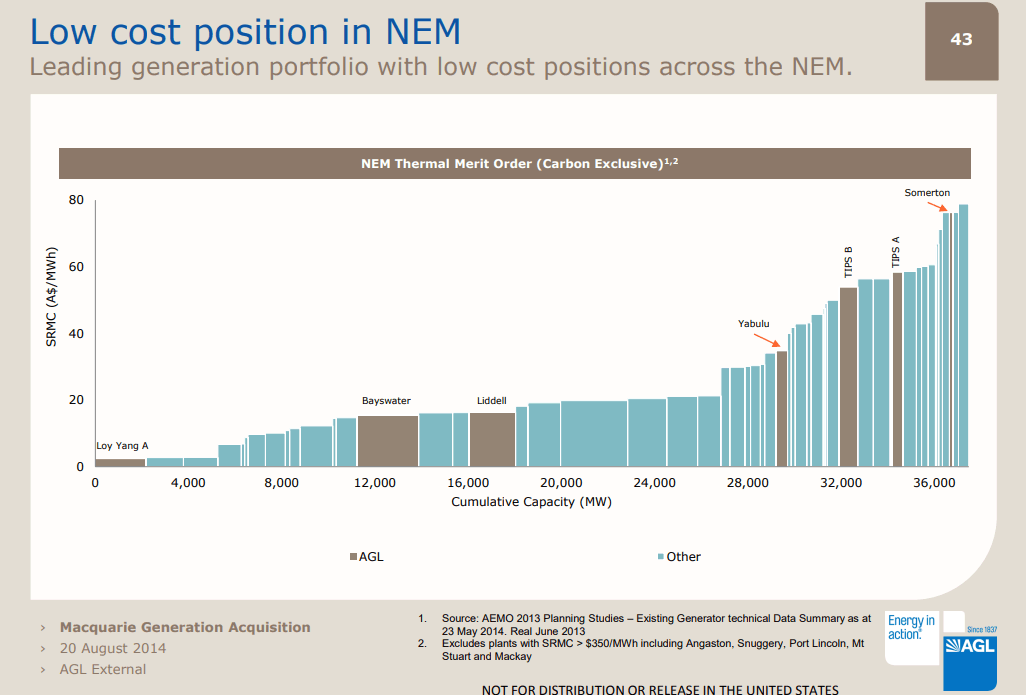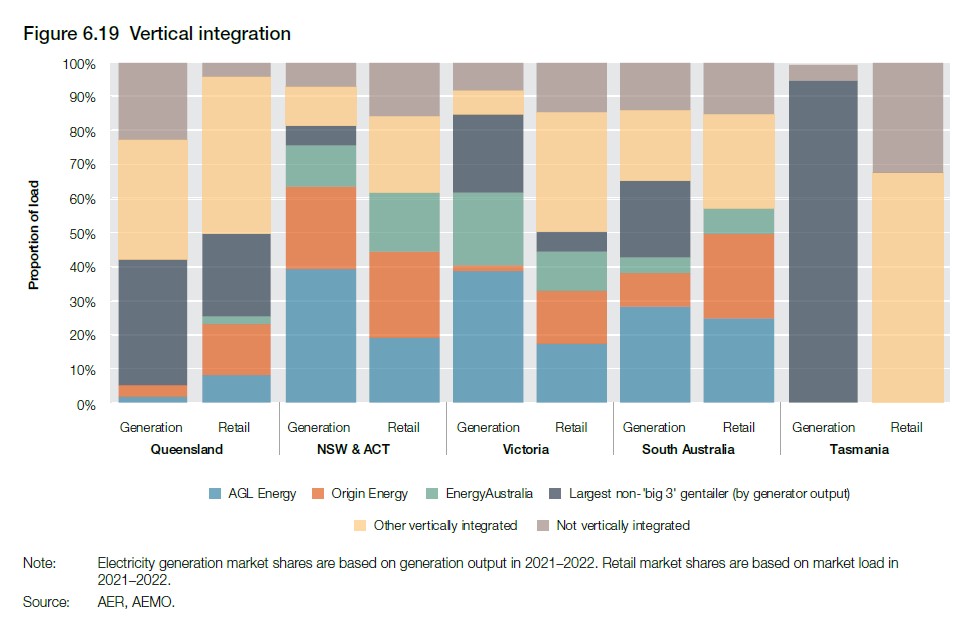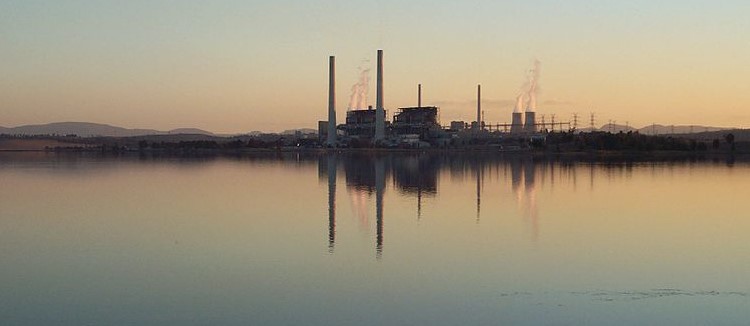A “win” for predatory capitalism and government mis-interference

Liddell power station (foreground). Bayswater power station (rear).
Photo NSW DPI
Yesterday, for the last time the final turbine was switched off at Liddell Coal plant after 52 years of operation. The NSW government gave it away for free in 2014 — bundled like a McHappy Meal in with the sale of Bayswater Coal, valued at $0. Governments saw old coal as worthless, at least until 2017 when everyone saw the bloodbath when the Hazelwood coal plant suddenly closed and electricity prices suddenly rose 85%. Then they started to panic a little — even Malcolm Turnbull (our Renewables lovin’ PM) started openly pressuring AGL to sell Liddell so it could keep running until his pet project the Snowy Hydro 2.0 could start. Chinese owned Alinta turned up with $250 million dollars and was willing to put in a billion to repair the station and extend its life up to 2030. Despite that bonanza, AGL refused to take the money. It was determined to run it into the ground and shut it down instead. Now it’s determined to blow it up as well. The Demolition crew is already appointed for early next year.
David Archibald notes the insanity:
The experiment is to close the Liddell power station in NSW and see what happens. Liddell’s operator, AGL, has applied to the NSW Government to blow up the power station rather than leave it in a form that can be restarted. This is the military equivalent of burning your bridges behind you — the expedition succeeds or you die.
Liddell’s big value to AGL was not to generate electricity but to buy and sabotage “the competition”
Like so many parts of the Western economy, the predators buy up the cheaper end of the market in order to destroy them. AGL are the largest single generator in Australia. They own a portfolio of gas, hydro, wind and solar power, all of which will likely make higher profits with Liddell out of the way.
The year after Hazelwood closed AGL profits launched up from $539 million to $1,600 million. No wonder they didn’t want to sell.
Liddell was worth more dead than alive
It shows how screwed our electricity market truly is when billion-dollar assets producing cheap electricity are better off destroyed. Hello, AEMO our energy market operator — are you listening? And ultimately, Hello Anthony Albanese (the current PM). He commands this ship of crazy rules. The market is just doing “what makes sense” — and generators are not rewarded for making cheaper electricity as much as they are rewarded for destroying it.
AGL wouldn’t sell Liddell because NSW electricity might get cheaper. Oh the travesty?
As I wrote in 2018, the analysts at JP Morgan were frank about AGL’s strategy — let’s translate their investor-speak: if AGL sold it to Alinta and Liddell kept operating, it might “unfortunately” keep electricity prices lower which would hurt all of AGL’s other generators. We can’t have that…
Selling the power station to Alinta would hurt the wholesale prices that AGL can charge for energy from its other assets, the analysts said, while also helping a rival that is determined to eat into AGL’s market share. Operationally, Liddell and AGL’s nearby Bayswater power station are supplied with coal from a single coal loader and are subject to a number of contracts that would need to be unwound.
“Extending (Liddell) would likely have a negative impact on wholesale prices, and therefore the value of the rest of AGL’s generation assets; it would support the growth of a competitor in electricity retailing; and a separation from Bayswater would be complicated with the two assets intrinsically linked,” JPMorgan said. — Paul Garvey, The Australian.
Lower wholesale prices means “good news for customers” but “bad news for expensive retailers” — like owners of renewable generators.
How wiping out cheap generators makes all other generators richer
This, below, was the bid-stack of our national grid ten years ago. The AEMO (market operator) accepts every bid from the cheapest on the left up to the last bid needed to meet the current demand. All successful bidders are paid whatever the top successful bid was. By taking out the cheaper providers on the left, the whole stack shifts “left” and higher bids must be accepted to meet demand.

Liddell is the third “brown” supplier from the left. *( Not graphed: most diesel plants costing more than $350/MWh because they blow the scale away.)
The cross ownership of assets makes predatory capitalism possible
Once upon a time governments were meant to protect consumers from this sort of thing. If 20 separate companies colluded together to rig the market so they’d all be better off but at the consumers expense, we’d call that a cartel. But if one company buys 20 smaller companies then doing the same thing is just “managing the portfolio”. See how this works?
On the Australian national grid there are three large conglomerate players who make most of our electricity (and who also do retail sales of electricity). AGL is marked in blue, and the market dominance is obvious — singlehandedly generating around 40% of the electricity required in our two most populated states.
We wouldn’t be in this mess if each separate power plant was competing in the free market to make a profit for itself and there weren’t holy subsidies for intermittent green electrons too.

State of the energy market 2022 – Full report ( PDF 12.94 MB ) page 205.
Some are blaming the privatisation of an electricity generator — if you can call it that, when it was given away for free like a toxic frog. But the bigger crime was nationalizing our electricity market and issuing pagan commandments that we use our generators as giant weather changing machinery.
But thank your central banker for keeping interest rates artificially low for years so the rich could do the takeover and merger dance to remove the competition.
Last word to John McRobert:
With the closing of Liddell power station and other closures pending, we might as well cut back on our defence budget. Soon there will be nothing left to defend.
Despite the courageous words of our Energy Minister Chris Bowen that there will be no power shortages – he who believes that climate can be controlled by legislation – the words of an old, sad song resonate: “Hello darkness my old friend.”
Vale Liddell, and may those you have served so well never forget you.

Liddell Power Station. Photo by Webaware
ABBREVIATIONS
AEMO – Australian Energy Market Operator